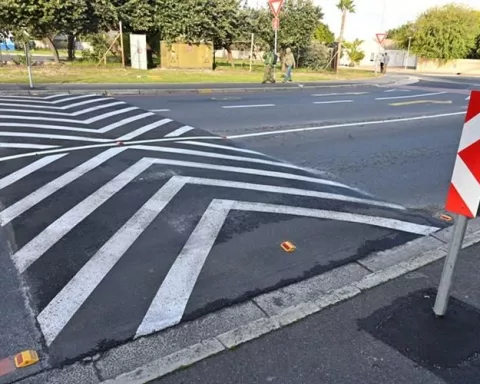The Cogta oversight visit to KwaZulu-Natal is a vital journey to see how local governments are doing and how they can better serve their communities. In the lively city of eThekwini, representatives are diving deep into issues like water access and financial management. They are listening to residents’ voices, especially in the Umlazi community, where water shortages are a big worry. This visit aims to spark change, bringing together government leaders and citizens to build a brighter future for all. It’s a story of hope, cooperation, and the drive for better living conditions in South Africa.
What is the purpose of the Cogta oversight visit to KwaZulu-Natal?
The Cogta oversight visit to KwaZulu-Natal aims to assess municipal governance, infrastructure, and community engagement. It focuses on improving struggling municipalities, enhancing service delivery, and addressing pressing issues like water accessibility, while fostering collaboration between government and citizens for transformative change.
Unraveling Governance in eThekwini
In the dynamic landscape of South Africa, the Portfolio Committee on Cooperative Governance and Traditional Affairs (Cogta) embarks on a vital oversight journey to KwaZulu-Natal. This visit is not merely a routine check but an exploration into the layers of governance, infrastructure, and community involvement, aiming to illuminate the hurdles and avenues for growth in this culturally rich province.
The expedition kicks off in the lively city of eThekwini, where Cogta’s representatives engage with provincial leaders to dissect the intricate workings of municipal administrations. This part of the visit reflects on the historical ties between governance and community enhancement, harking back to the principles of the Government of National Unity. This framework historically aimed to unite diverse factions, offering stability and lessons applicable to South Africa and other post-colonial contexts. Within eThekwini, discussions focus on the political and administrative interplay, closely examining the competencies of those governing this vibrant metro.
Cogta’s itinerary is packed with engagements designed to uncover the inner workings of municipal governance. From the outset, attention shifts to the execution of provincial support mandated by Section 154 of the South African Constitution, which is crucial for boosting struggling municipalities. This section stresses the importance of national or provincial assistance to strengthen local governments when needed. Such interventions are envisioned not just as formalities but as catalysts for significant improvements in municipal operations.
Infrastructure and Financial Management Insights
As the day unfolds, focus turns to eThekwini’s Executive Committee, where discussions center on governance, fiscal management, and infrastructure states. This phase of the visit harks back to urban planning ideologies from the mid-20th century, which highlighted infrastructure as essential to city planning and service provision. Today’s challenges in maintaining these systems parallel the ongoing struggle between innovation and deterioration.
The visit also touches upon the efforts of the Presidential Working Group, a body aimed at aligning governmental efforts to heighten efficiency and service delivery. Furthermore, disaster management strategies are critically analyzed, serving as a poignant reminder of the persistent threat of natural calamities to urban resilience and stability.
A particularly pressing item on the agenda is the enduring struggle with water accessibility. The committee engages with the Umlazi community, a township mirroring South Africa’s broader socio-economic issues. Amidst Umlazi’s cultural vibrancy, water scarcity remains a significant concern. A visit to the Umlazi 2 Reservoir highlights the infrastructural shortcomings that impede reliable water supply, echoing global challenges in areas where water remains both a right and a resource.
Community Engagement and Economic Considerations
Throughout these discussions, financial issues, particularly municipal debt and revenue collection, consistently arise. These conversations draw insights from historical economic debates of the late 20th century concerning the balance of public spending and debt sustainability. The matter of non-revenue water losses, a term for water wasted before reaching consumers, is also under scrutiny—a challenge not unique to South Africa but prevalent globally in resource management.
In subsequent days, the committee shifts attention to the Msunduzi Local Municipality, visiting the Kuzwayo and Vulindlela reservoirs. These site visits aim to provide tangible insights into the infrastructure challenges and daily struggles faced by the community. Here, the narrative blends with the lived experiences of the residents, illustrating the profound link between governance choices and life quality.
Community engagements in Willowton and Vulindlela promise to be rich with stories as residents express their concerns and dreams. These interactions offer citizens a direct platform to communicate with policymakers, echoing participatory governance models promoted by civic movements worldwide.
A Narrative of Transformation and Accountability
As the oversight visit continues, it mirrors a broader narrative of transformation and accountability. The committee’s efforts are deeply rooted in the ethos of cooperative governance, drawing inspiration from Nordic countries’ collaborative governance models, where decentralization and local empowerment have fostered civic engagement and trust.
Reflecting on these events highlights the delicate balance required in governance—between crafting policies and adapting to ground realities, between historical legacies and future aspirations. The story of eThekwini and its neighboring communities is one of resilience, shaped by a complex interplay of historical, political, and socio-economic factors.
This visit by Cogta is more than an assessment; it is an invitation to reimagine the potential of South Africa’s municipalities. It calls upon all stakeholders to collaboratively forge a path towards fair service delivery, sustainable infrastructure, and vibrant, empowered communities. As this oversight journey unfolds, it illuminates the intricate dance between governance and human aspiration, a tale as timeless and profound as the land itself.
FAQ about the Cogta Oversight Visit in KwaZulu-Natal
What is the purpose of the Cogta oversight visit to KwaZulu-Natal?
The purpose of the Cogta oversight visit to KwaZulu-Natal is to assess municipal governance, infrastructure, and community engagement. It focuses on improving struggling municipalities, enhancing service delivery, and addressing pressing issues like water accessibility, while fostering collaboration between government and citizens for transformative change.
Which areas are being specifically addressed during the visit?
The visit particularly emphasizes the eThekwini metropolitan area, with a strong focus on the Umlazi community, where issues such as water shortages and financial management are being critically examined. The committee also explores infrastructural challenges and municipal debt issues affecting local governance.
How does the oversight visit aim to improve water access in communities?
The oversight visit includes direct engagements with communities experiencing water shortages, such as Umlazi. By investigating infrastructure shortcomings and discussing potential solutions, the Cogta aims to develop actionable strategies that could lead to improved water access and overall living conditions in these areas.
What role does financial management play in the oversight visit?
Financial management is a significant focus during the visit. The committee discusses issues like municipal debt, revenue collection, and non-revenue water losses, which are crucial for effective governance and sustainable service delivery. Insights from these discussions aim to guide improvements in fiscal management across municipalities.
How does the visit encourage community engagement?
The oversight visit promotes community engagement by providing residents with a platform to voice their concerns and aspirations directly to policymakers. Engagements in areas like Willowton and Vulindlela allow citizens to participate in discussions about governance and service delivery, reflecting participatory governance models that empower communities.
What is the broader significance of the Cogta oversight visit for South Africa?
The Cogta oversight visit symbolizes a broader narrative of transformation and accountability in South Africa. It seeks to reimagine the potential of municipalities by fostering cooperation between all stakeholders, aiming for fair service delivery, sustainable infrastructure, and vibrant communities. This initiative is rooted in the ethos of cooperative governance, echoing successful models from other countries that prioritize local empowerment and civic engagement.












